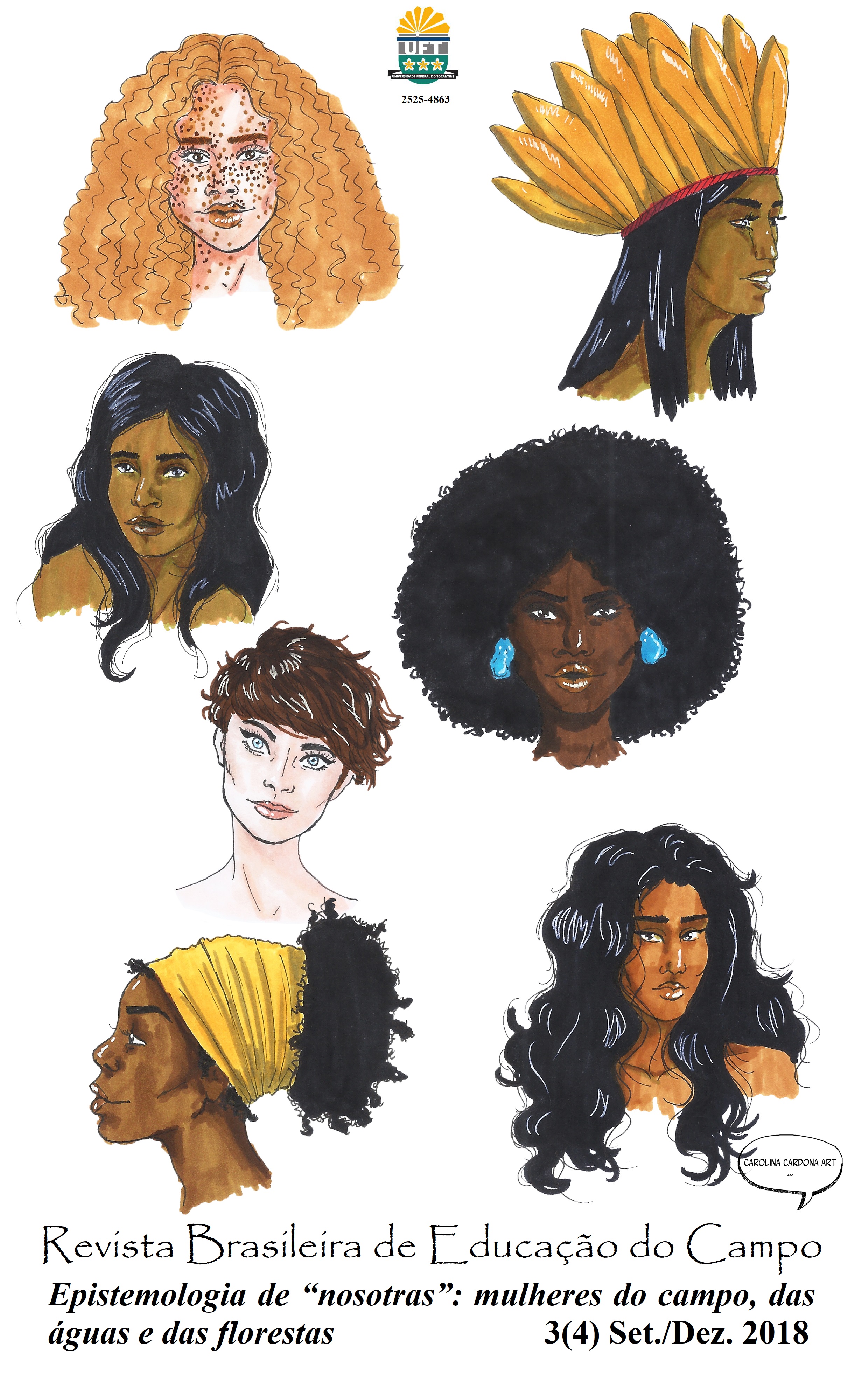Education of women riverside in the municipality of Breves
DOI :
https://doi.org/10.20873/uft.2525-4863.2018v3n4p1249Résumé
ABSTRACT. This work aims to understand the gender approach that permeates the curricular proposal of the elementary schools of the countryside of the municipality of Breves, to identify what is affirmed about the riverside woman in the mentioned curricular proposal and evaluates what knowledge about the riverside woman is included in the document. The study was realized through bibliographical and documentary research. The document analyzed was the curricular proposal of the schools of the countryside of the municipality of Breves, elaborated in 2012 and revised in 2014. The main theorists who foundation this work were Scott (2005), Louro (2007, 2005), Meyer (2007), Oliveira 2004), (Pinto, 2001). The curricular proposal of the countryside schools presents a fragile discussion about gender, based on a biological conception, in which we do not perceive the presence of the different identities, which, although silenced, are present in the school. In the document we did not identify any reference to the riverside woman, her stories of struggle and resistance were left aside from the discussions of a document that legitimizes what should be taught and learned in the countryside schools.
Téléchargements
Téléchargements
Publié-e
Comment citer
Numéro
Rubrique
Licence
Proposal for Copyright Notice Creative Commons
1. Policy Proposal to Open Access Journals
Authors who publish with this journal agree to the following terms:
A. Authors retain copyright and grant the journal right of first publication with the work simultaneously licensed under the Creative Commons Attribution License that allows sharing the work with recognition of its initial publication in this journal.
B. Authors are able to take on additional contracts separately, non-exclusive distribution of the version of the paper published in this journal (ex .: publish in institutional repository or as a book), with an acknowledgment of its initial publication in this journal.
C. Authors are permitted and encouraged to post their work online (eg .: in institutional repositories or on their website) at any point before or during the editorial process, as it can lead to productive exchanges, as well as increase the impact and the citation of published work (See the Effect of Open Access).














